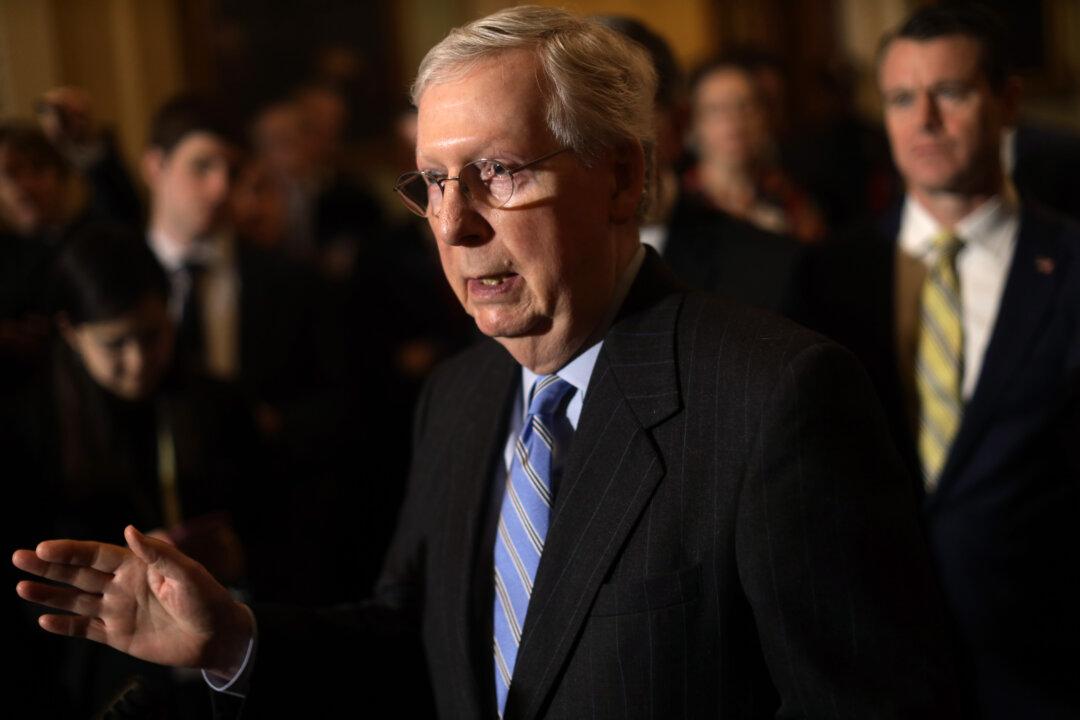The Senate hopes to take up a funding measure to fight the spread of the new coronavirus within the next two weeks, Senate Majority Leader Mitch McConnell (R-Ky.) said Feb. 27.
“I have faith the [Appropriations] Committee will carefully consider the right sum to appropriate at this time to ensure our nation’s needs are fully funded,” he said, while speaking on the floor of the Senate in Washington. “I hope they can work expeditiously so the full Senate would be able to take up the legislation within the next two weeks.”





